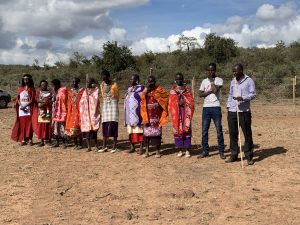
There are approximately 50 men, women and children in attendance. The family are lined up waiting to greet us. First everyone shakes hands with everyone else. Then the visitors stand opposite the family so that we form two lines. A representative from the family gives a formal greeting, a short welcome speech and leads a prayer for the visitors. Then the visitors return the greeting, give a thank you speech and offer a prayer for the family. Throughout this process, almost everyone is staring at the mzungu Maasai.
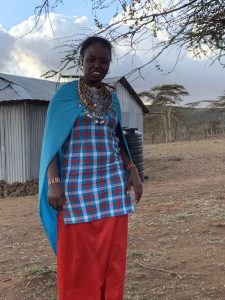
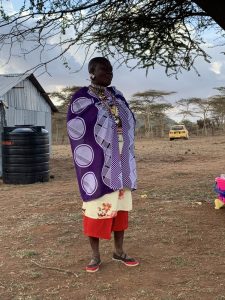
Formalities over for the moment, Noisim claims ownership of me by linking her arm through mine. She loves my outfit! I am introduced to her husband, brothers, sister and Mum. Then it’s time to meet the cousins and aunts. As always, the women look magnificent with their bright colours and billowing capes. Today I feel like one of the crowd.
Women are invited inside the old house to have some food. It would be inconceivable to have a Maasai celebration without food. About 25 of us squeeze in to a small living room. The men eat separately: outside under the shade of a large acacia tree.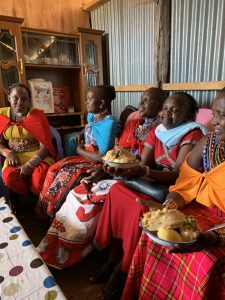
Plates filled with mounds of food are brought. Rice, potato, chapatti, cabbage, kachambari (a deliciously spicy tomato, chili and onion relish) and beef. I ask for a small plate so end up with a portion that would only feed 2 starving adults.
The women chat in Kimmasai. They are discussing what to do to avoid their husbands beating them. I can’t understand the words but I certainly grasp the sentiment. The younger women are certainly not as subservient as the older ones. It is interesting that this subject has been brought up twice in the last two days.
After lunch, we head outside for the official ceremony to begin. Men and women are strictly segregated as always. I am swamped with guests taking selfies and photos of the mzungu Maasai. At one point, there is even an orderly queue. I have never been so popular!
More prayers, hymns and speeches. Then it is time for guests to present their gifts or a small financial donation. Bags of unga flour, wheat flour, rice, chairs and sufurias (Kenyan pots) are laid out. I give a cash donation. Then we take a tour of the new house – which is only half built, before gathering together again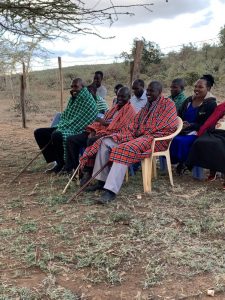
Suddenly, I am invited to go forward to the front. I am expecting the usual ambush which involves me giving an impromptu speech. But I am wrong. I am formally presented with a new chukka as thanks for honouring the family with my presence. One of the benefits of being a demi-god!
Another great experience for me. I reflect on how lucky I have been to be so included in the local community. Kenya is becoming my second home.
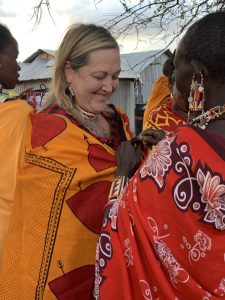
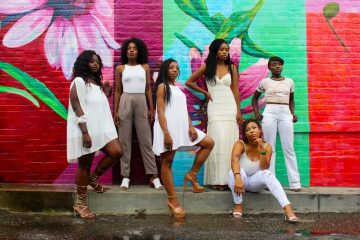
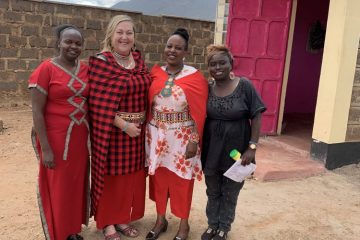
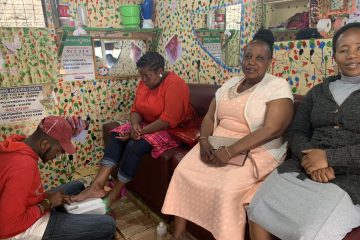
0 Comments